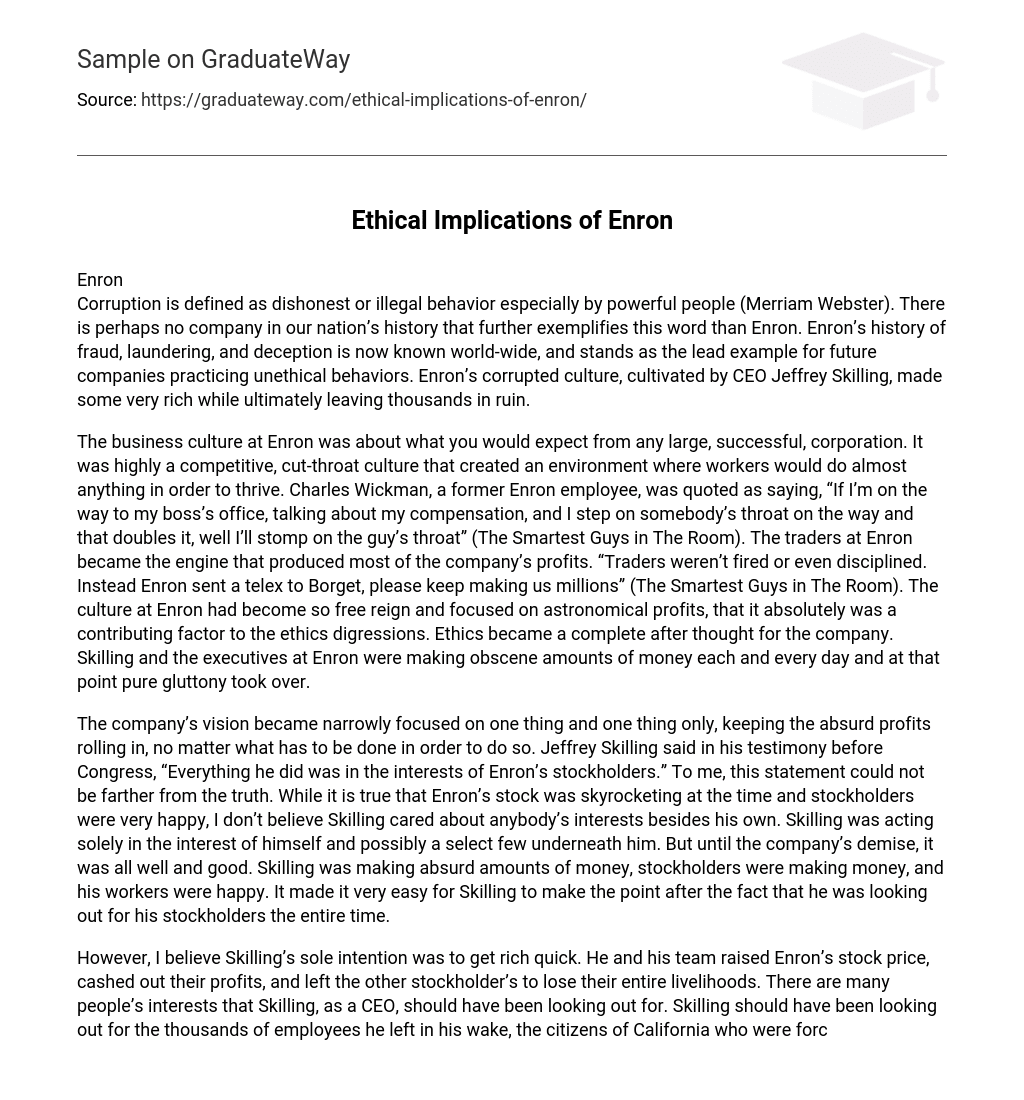Enron
Corruption, as defined by Merriam Webster, refers to dishonest or illegal behavior, especially among individuals in positions of power. Enron exemplifies this definition in the history of our country. Enron’s global reputation clearly demonstrates their participation in fraudulent activities, money laundering, and deceit, establishing a standard for future companies involved in unethical practices. The toxic culture established by CEO Jeffrey Skilling allowed certain individuals to accumulate significant wealth at the expense of thousands who were ultimately left devastated.
The business culture at Enron was similar to that of other large, successful corporations. It was highly competitive and cut-throat, fostering an environment where workers would stop at nothing to succeed. According to Charles Wickman, a former Enron employee, he would even go as far as stepping on someone’s throat to double his compensation (The Smartest Guys in The Room). The traders at Enron were responsible for generating most of the company’s profits. Instead of firing or disciplining them, Enron simply requested that they continue making millions (The Smartest Guys in The Room). The culture at Enron had become so focused on astronomical profits that ethics became an afterthought. Skilling and the executives were making immense amounts of money every day, leading to pure gluttony.
The main goal of the company was to maintain high profits, disregarding the necessary steps to achieve them. Jeffrey Skilling argued during his testimony before Congress that every action he took was for the benefit of Enron’s stockholders. However, I strongly disagree with this assertion. While Enron’s stock price was rapidly increasing and stockholders were pleased, I believe Skilling primarily prioritized his own interests and may have favored a select group of subordinates. Nonetheless, as long as the company prospered, everything appeared satisfactory. Skilling earned significant sums of money, stockholders made profits, and his employees were satisfied. This situation conveniently allowed Skilling to subsequently claim that he had always looked after his stockholders.
However, I believe Skilling’s main objective was to acquire wealth rapidly. He and his team boosted Enron’s stock price, profited from it, and left other stockholders to suffer significant financial losses. As a CEO, Skilling should have prioritized the interests of many individuals. He should have taken into account the well-being of the thousands of employees he left unemployed, the Californian residents who were affected by the power shortages, and the national objective of achieving deregulation across the country. Skilling disregarded all these factors and likely didn’t even consider them. Jeffrey Skilling aimed to transform Enron into a colossal company that would be remembered for generations. Well done, Jeffrey—your company and its unethical principles will now be remembered for their disgraceful reputation.





